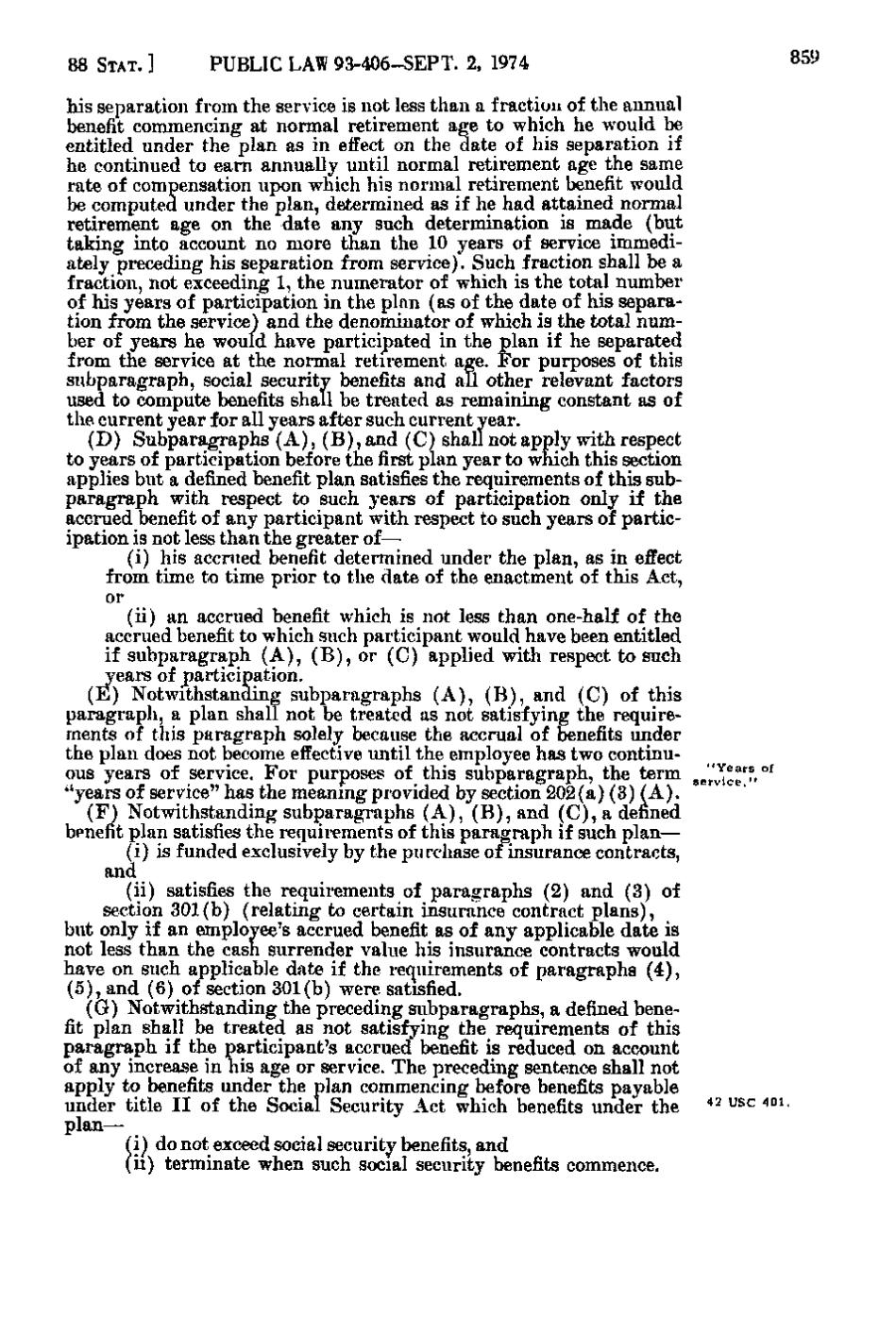88 STAT. ]
PUBLIC LAW 93-406-SEPT. 2, 1974
his separation from the service is not less than a fraction of the annual benefit commencing at normal retirement age to which he would be entitled under the plan as in effect on the date of his separation if he continued to earn annually until normal retirement age the same rate of compensation upon which his normal retirement benefit would be computed under the plan, determined as if he had attained normal retirement age on the date any such determination is made (but taking into account no more than the 10 years of service immediately preceding his separation from service). Such fraction shall be a fraction, not exceeding 1, the numerator of which is the total number of his years of participation in the plan (as of the date of his separation from the service) and the denominator of which is the total number of years he would have participated in the plan if he separated from the service at the normal retirement age. For purposes of this subparagraph, social security benefits and all other relevant factors used to compute benefits shall be treated as remaining constant as of the current year for all years after such current year. (D) Subparagraphs (A), (B), and (C) shall not apply with respect to years of participation before the first plan year to which this section applies but a defined benefit plan satisfies the requirements of this subparagraph with respect to such years of participation only if the accrued benefit of any participant with respect to such years of participation is not less than the greater of— (i) his accrued benefit determined under the plan, as in effect from time to time prior to the date of the enactment of this Act, or (ii) an accrued benefit which is not less than one-half of the accrued benefit to which such participant would have been entitled if subparagraph (A), (B), or (C) applied with respect to such years of participation. (E) Notwithstanding subparagraphs (A), (B), and (C) of this paragraph, a plan shall not be treated as not satisfying the requirements of this paragraph solely because the accrual of benefits under the plan does not become effective until the employee has two continuous years of service. For purposes of this subparagraph, the term ser^ilT^'°^ "years of service" has the meaning provided by section 202(a)(3)(A). (F) Notwithstanding subparagraphs (A), (B), and (C), a defined benefit plan satisfies the requirements of this paragraph if such plan— (i) is funded exclusively by the purchase of insurance contracts, and (ii) satisfies the requirements of paragraphs (2) and (3) of section 301(b) (relating to certain insurance contract plans), but only if an employee's accrued benefit as of any applicable date is not less than the cash surrender value his insurance contracts would have on such applicable date if the requirements of paragraphs (4), (5), and (6) of section 301(b) were satisfied. (G) Notwithstanding the preceding subparagraphs, a defined benefit plan shall be treated as not satisfying the requirements of this paragraph if the participant's accrued benefit is reduced on account of any increase in his age or service. The preceding sentence shall not apply to benefits under the plan commencing before benefits payable under title II of the Social Security Act which benefits under the ^ "^^ '*°^plan— 'i) do not exceed social security benefits, and ^ii) terminate when such social security benefits commence.
859
�
